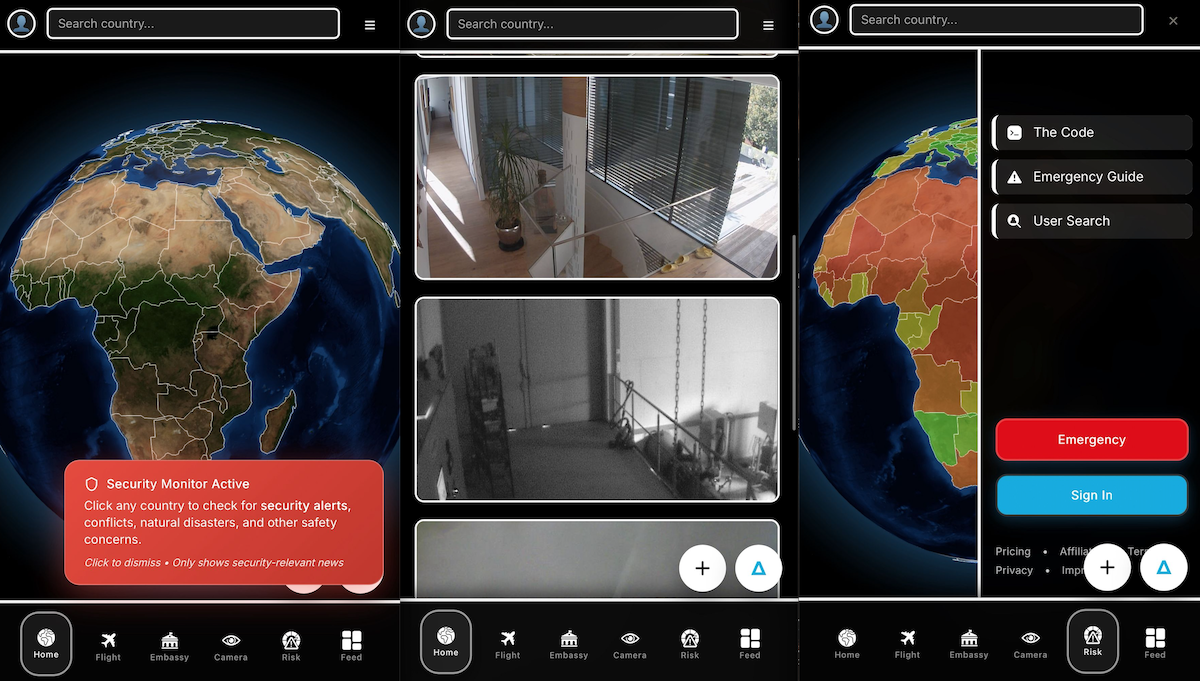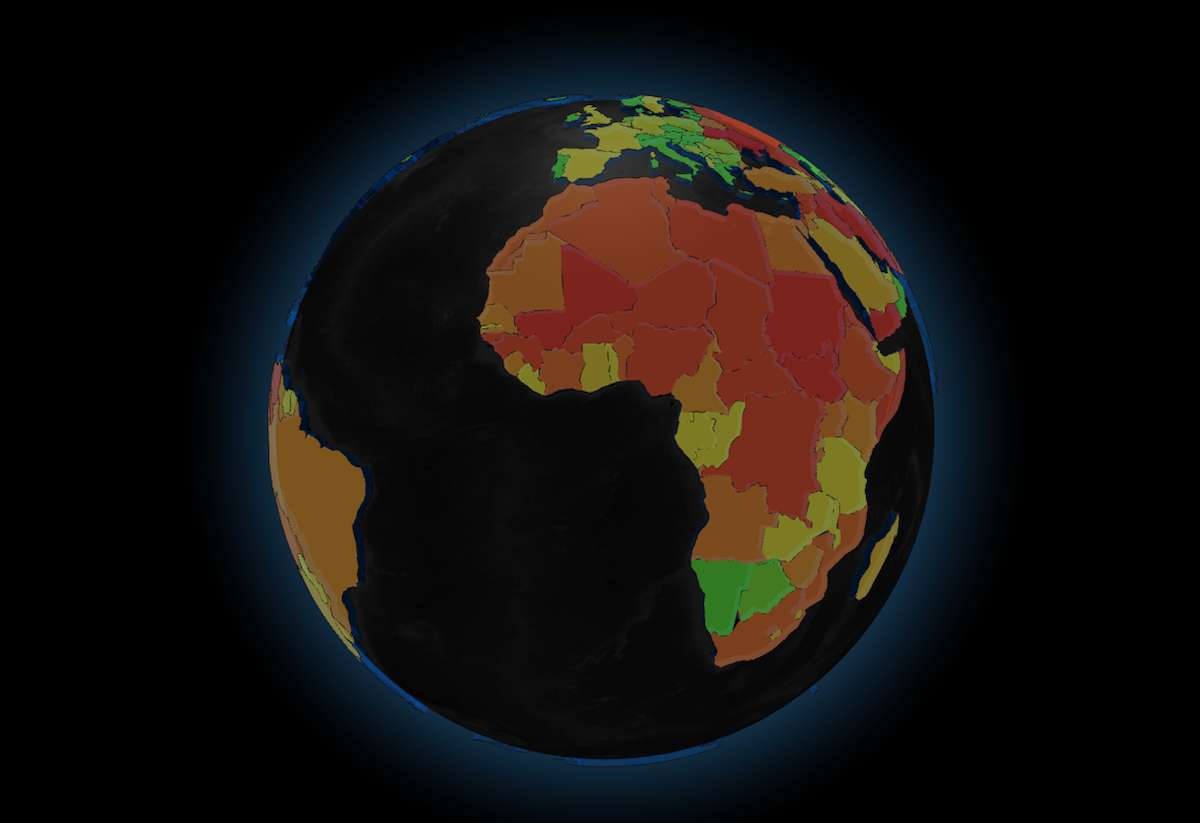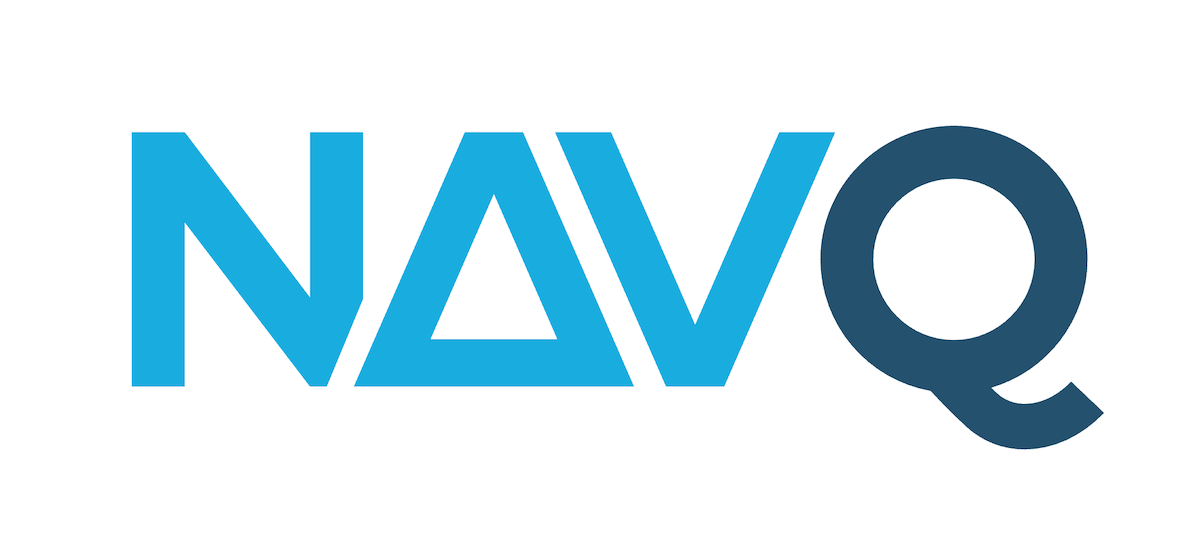Get the weekly SPARTANAT newsletter.
Your bonus: the free E-Book from SPARTANAT.

“NAVQ brings security for everyone”
NAVQ is a revolutionary app designed to democratize safety by providing accessible, real-time global security information. Developed by Stefan Embacher and his team, the platform combines AI, social intelligence, and verified data to help users assess risks and respond proactively to crises, fostering informed decision-making for all.
NAVQ aims to provide security—for all of us. The new app launches today. We wanted to find out more about it from Stefan Embacher, who developed NAVQ with his team. And what we as users can expect from this app.
SPARTANAT: Where does NAVQ come from? What is it good for? What were the key sources of inspiration and technical foundations for the development of NAVQ?
Stefan Embacher: NAVQ was born from a simple but radical idea: safety should not be a privilege. At a time when wars, cyberattacks, and crises flicker across our screens in real time, the world lacked a platform that made global safety information understandable, accessible, and actionable for everyone. My team and I had a vision of creating a civilian digital command center—a tool that would enable everyone to identify risks and make decisions, exchange ideas with people who have expertise in this area, and prepare the world for the coming years.
The key sources of inspiration were the panoptic principle—the idea of changing behavior through observation—and the fusion of classic intelligence methods with modern AI analysis. Technically, NAVQ is based on a combination of OSINT, SOCMINT, GEOINT, and machine learning, linked to a modular data framework that aggregates information from thousands of reputable sources. Added to this is the community concept: when we talk about social intelligence media, we mean social media linked to intelligent information that is provided by reputable sources that we have verified, on the one hand, and information that users share in their feed in the form of posts, on the other.
SPARTANAT: How does NAVQ differ from previous security solutions, and what specific advantages does the platform offer users?
Previous security solutions were either government- or military-based, or highly specialized – in other words, not accessible to the general public. NAVQ fundamentally changes this paradigm. It is not an app in the traditional sense, but rather a program that democratizes security.
For users, this means
- they get a global overview of the situation in real time,
- can exchange information with like-minded people in a social intelligence network,
- and receive specific recommendations for action in crisis situations.
NAVQ combines the speed of social media with the precision of modern situation centers – all on a single platform. For everyone, no matter where they are, no matter what crisis is happening in the world.

SPARTANAT: How does NAVQ enable better assessment and proactive response to global crises in real time?
NAVQ analyzes global events in real time, links them to historical patterns, and uses this information to deliver predictable risk trends. This allows users to identify when political tensions, natural hazards, or cyber activities are increasing in a region—long before they make headlines.
The app uses a combination of verified news feeds, live data streams, geolocation, and an AI-powered risk index to reveal complex relationships. The goal: to turn information into guidance. To turn guidance into security.
SPARTANAT: What is the development team like to work with, and what challenges did you face in implementing such a comprehensive situation center?
The NAVQ team consists of 15 developers, analysts, and strategists from various fields, ranging from cybersecurity and military intelligence to artificial intelligence. The biggest challenge was to structure the vast amount of global data sources in such a way that they could be analyzed accurately, quickly, and securely without overwhelming users with complexity.
The collaboration was characterized by a clear goal: to create a platform that functions like a digital operations center – intuitive, visual, and strategic. The team worked closely with experts from the RocFortis Group companies to align content, scenarios, and crisis procedures with real security situations. We spent a long time racking our brains over what information the platform should contain and what it should look like at launch. We wanted to avoid building a platform with hundreds of features that would ultimately fail to meet user needs. I think we now have a platform that provides real added value for users from day one, while still leaving enough room for planned enhancements. These enhancements should be implemented in such a way that early adopters don't jump ship, but instead experience a “wow” effect with each new feature.

SPARTANAT: What are your future plans for NAVQ to continue adapting the platform to ever-changing threat scenarios? What is the long-term goal?
NAVQ is just getting started. The next step is to integrate a predictive risk model that uses AI to not only identify risks, but also predict their probability of occurrence – for example, terrorist attacks in large cities or natural disasters in rural areas. We also have a heat map in the pipeline that shows daily refugee movements, demonstrations, or current natural disasters, always in connection with social media – i.e., networking, videos, images, etc. – so that everyone who uses NAVQ can get a global picture of the situation without being ideologically influenced.
In the long term, we want to make NAVQ a global standard for situational awareness – a platform where security, information, and human intelligence converge.
“NAVQ is power, but not in the sense of control – rather in the sense of knowledge. Those who understand what is happening are prepared. And those who are prepared remain free.”

NAVQ on the Internet
Stefan Embacher (born September 10, 1991, in Zell am See) is an entrepreneur and co-founder of Foreus Intelligence, a private intelligence service. Embacher is now Chairman of the Board of the RocFortis Group, an internationally oriented group of companies based in Vienna that focuses on security, defense, and the use of artificial intelligence and robotics in military and security-related contexts.
SPARTANAT is the online magazine for Military News, Tactical Life, Gear & Reviews.
Send us your news: [email protected]
Ad
similar
Get the weekly SPARTANAT newsletter.
Your bonus: the free E-Book from SPARTANAT.


